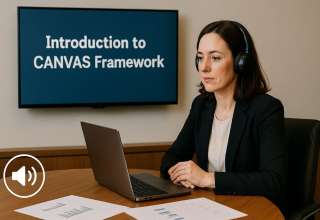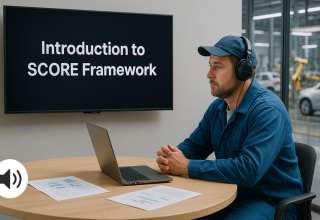
*) Gambar sebagai ilustrasi
The 4M NEI Framework, conceptualized by Mohamad Haitan Rachman, stands as a holistic and spiritually grounded model for lifelong personal, professional, and communal development. Rooted in the values of reflective thinking, collective deliberation, disciplined striving, and honest self-accountability, the framework is structured around four interrelated pillars: Mudzakarah, Musyawarah, Mujahadah, and Muhasabah. These four concepts, drawn from rich Islamic philosophical traditions, transcend religious boundaries and can be universally applied by anyone seeking deeper self-awareness and meaningful progress.
At its core, the 4M NEI Framework promotes “Never Ending Improvement”—an ethos that recognizes growth as a continuous, multi-dimensional process rather than a destination. The journey begins with Mudzakarah, which emphasizes shared reflection and knowledge exchange. It invites individuals and groups to rediscover values, share wisdom, and reconnect with foundational truths that often become obscured in the hustle of daily life. In practice, this might take the form of a thoughtful conversation among colleagues about the meaning of integrity in their work, or a personal journal entry reflecting on the virtue of patience in leadership. Mudzakarah provides the moral and intellectual grounding needed to approach challenges with clarity and purpose.
The second pillar, Musyawarah, builds on this foundation by encouraging collective deliberation. It simulates or facilitates collaborative thinking and decision-making processes that honor diverse viewpoints. Whether in a boardroom or a village council, Musyawarah is the space where ideas are weighed, perspectives are considered, and consensus is sought—not through power dynamics but through mutual respect and shared goals. For example, a school facing decisions about implementing new technology might engage in Musyawarah by organizing roundtable discussions with teachers, students, and parents, ensuring that every voice contributes to the final decision.
Following deliberation comes Mujahadah, the pillar of disciplined effort and inner struggle. It represents the stage where intentions are transformed into actions through perseverance and self-mastery. Mujahadah acknowledges that real change is neither instant nor easy; it involves confronting resistance—both internal and external—and making conscious, often difficult choices in pursuit of growth. Applied personally, Mujahadah might manifest as a commitment to waking early for meditation or journaling. In a team setting, it could involve implementing structured routines to overcome procrastination or distractions, driven by shared accountability.
The final stage in the cycle is Muhasabah, which focuses on self-evaluation and reflection. It invites individuals and groups to pause, look back, and assess how closely their actions aligned with their values and intentions. This stage is essential for closing the feedback loop of learning and improvement. It’s a practice of humility, where successes are acknowledged not as endpoints but as motivations for deeper dedication, and where shortcomings are seen as opportunities for refinement rather than failures. Muhasabah might take the form of a weekly review session where a team evaluates its progress against strategic goals, or a quiet end-of-day reflection on how one responded to challenges and opportunities.
The beauty of the 4M NEI Framework lies in its cyclical structure. Rather than a linear model with a definitive end, it encourages repeated movement through these four stages, each time deepening awareness, enhancing wisdom, and reinforcing commitment. It is a model not just for thinking, but for living—a way to harmonize intention, action, and reflection in a rhythm that supports enduring transformation.
To illustrate its application, consider a real-world example of a community development project. Suppose a nonprofit organization is working to improve literacy in a rural area. The project begins with a Mudzakarah session, where community members and educators reflect on the value of education in their cultural and spiritual context. This conversation not only inspires action but helps ground the initiative in locally resonant values. Next, through Musyawarah, the project team consults with teachers, parents, and students to determine the best methods for delivering educational content—balancing traditional practices with modern tools. Once the strategy is agreed upon, the team enters the Mujahadah phase, implementing the program with discipline, addressing logistical challenges, and sustaining motivation amid resource constraints. Finally, the team engages in Muhasabah, reviewing outcomes and identifying areas for improvement—not just in metrics like attendance or test scores, but in how well the project has upheld its core values and served its community.
This continuous cycle—beginning in reflective wisdom and ending in constructive evaluation—exemplifies how the 4M NEI Framework can be practically integrated into initiatives that require both heart and strategy. Whether applied to personal growth, organizational leadership, or societal change, the framework provides a structured yet flexible path toward deeper authenticity, resilience, and effectiveness. It elevates ordinary routines into intentional practices and transforms challenges into catalysts for lasting betterment.
In an age that often prioritizes speed over depth, the 4M NEI Framework offers a refreshing paradigm. It reminds us that true progress is not measured solely by output, efficiency, or visibility, but by alignment with enduring values, mindful collaboration, determined effort, and honest introspection. As such, it stands as a valuable compass for anyone seeking to lead a life of integrity and impact—one that is both purpose-driven and sustainably evolving.
If you have questions regarding the training, mentoring, and system development that we provide, and wish to collaborate, please contact us at haitan.rachman@inosi.co.id







